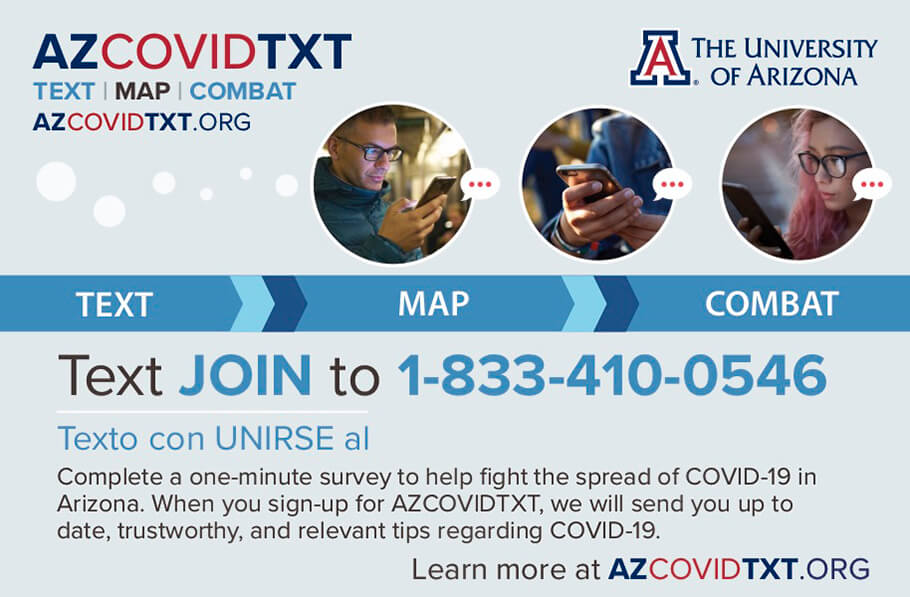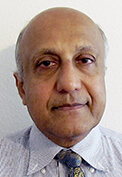
Two-way Texting System Launched to Provide Information and Gather Data on Coronavirus in Arizona

A two-way texting system to provide targeted information on COVID-19 and address a critical lack of local data about the spread of the pandemic launched April 20, and within the first 40 hours had enrolled 903 households in 111 Arizona zip codes.

Three weeks ago, Dr. Iyengar saw the need for better communication between people who had questions about the pandemic and where they could go for help — not just on the health consequences of the disease, but also on its economic, nutritional, mental health effects — and researchers who wanted to track Covid-19-related symptoms and diagnoses.
His idea for the two-way texting system came from his previous research, which focused on improving community health and addressing health inequity with the use of mobile phones. Text messaging was chosen since it is simple, low-impact and does not need users to install anything on their phones.


Azcovidtxt will enable people to report weekly the health and wellness condition in their household by participating in brief surveys via their mobile phones. This will allow them to connect with resources and provide COVID-19 information to a team of University of Arizona researchers.
To participate, Arizonans need to text “JOIN” to 1-833-410-0546. For Spanish speakers, texto con UNIRSE al 1-833-410-0546. Users also can sign up through the project website.

Participants may enroll anonymously and provide weekly information on the health status of themselves and others in their household. It does not collect personally identifiable information and does not attempt to locate or track participants. In addition to health questions, users will be asked about their access to food, medicine, sanitary and other essential supplies, as well as about stress and anxiety levels. In response, follow-up messages may refer users to an area food bank, counseling or other services.
A community resource board on the website will be part of the platform to allow messaging tailored to different community segments.
The first phase of the project aims to enroll 100,000 households, the second phase targets 500,000 households and in the third phase, researchers hope to enroll 1 million participants throughout Arizona.
About the College
Founded in 2007, the University of Arizona College of Medicine – Phoenix inspires and trains exemplary physicians, scientists and leaders to advance its core missions in education, research, clinical care and service to communities across Arizona. The college’s strength lies in our collaborations and partnerships with clinical affiliates, community organizations and industry sponsors. With our primary affiliate, Banner Health, we are recognized as the premier academic medical center in Phoenix. As an anchor institution of the Phoenix Bioscience Core, the college is home to signature research programs in neurosciences, cardiopulmonary diseases, immunology, informatics and metabolism. These focus areas uniquely position us to drive biomedical research and bolster economic development in the region.
As an urban institution with strong roots in rural and tribal health, the college has graduated more than 1,000 physicians and matriculates 130 students each year. Greater than 60% of matriculating students are from Arizona and many continue training at our GME sponsored residency programs, ultimately pursuing local academic and community-based opportunities. While our traditional four-year program continues to thrive, we will launch our recently approved accelerated three-year medical student curriculum with exclusive focus on primary care. This program is designed to further enhance workforce retention needs across Arizona.
The college has embarked on our strategic plan for 2025 to 2030. Learn more.